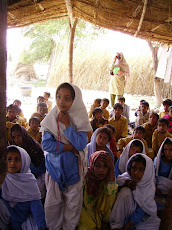Report: Janet’s Journey.
As a clinician (nurse), with a global appreciation of health service requirements in tertiary and primary health facilities, it was an interesting experience to listen and learn and be told how the complexities of delivering health systems impacts on multiple organisations at all levels of care. The models of care by large NGOs and also those of relatively small NGOs have the basic concept of providing care to disadvantaged minorities.
Following an amazing fact finding visit to birthing places in Papua New Guinea (PNG) the 10 days previously, I came to this convention thinking I would learn some amazing new strategies to enable Soroptimists to deliver projects more effectively and efficiently.
Roundtables, workshops and discussions showed that most NGOs are all working towards the common goal of health and well being for all peoples, irrespective of any country or MDG.
The intrigue of different models of care delivery, negotiation strategies used with governments, pragmatic determination of movers and shakers, made illuminating discussion and debate. Identifying the movers and shakers and follow up with face to face introductions led me on a journey of information gathering and exchange. My intention was to make contact with as many delegates who may provide me with knowledge of skills that would assist me in the preparation and planning for the SISWP project in PNG “Birthing in the Pacific” (BIP).
I questioned the consultant who helped prepare the recently published PNG Health Plan, on how he could assure me that in his country, priority would be given to essential measures such as infection control, antenatal care, skilled attendance at birth, access to emergency obstetric care when necessary, post-partum care and newborn care. He assured me that the Ministers for Health will be responsible for reporting regularly and held accountable against the Health Plan.
I sat and discussed with the Catholic Nun Midwife how the remote PNG highland community she works in manages birthing places with dignity and respect for their mothers. She was proud of her achievement even working in the most extreme circumstances. The birthing mothers are provided with sheets for their beds. They are fed and the baby pack includes clothes, wraps, nappies and soap. This close community respects the Catholic health service and has been consulted in its formation and ongoing performance in successful health outcomes. We agreed to share our resources for the future upskilling course planned for the BIP project.
So different to the story of a busy labour ward of the provincial hospital only a hundred kilometers away which cannot cope with basic human rights and dignity for the birthing women and the clinicians attending to them.
HIV/AIDS was discussed in most forums and it was quite surprising for me to hear that in many countries, the basic infection control commodity, gloves, were often not sustainable resourced to those clinicians who required them at their point of care. I also learned that opinion now indicates that it is inappropriate for HIV/AIDS to be treated in isolation. The diseases are now intertwined with complexities of Tuberculosis and Malaria.
Finally, the challenge has been given to each of us to further investigate ways to achieve the MDG’s by 2015.
Think globally- Act Locally” was advised, however, in many countries the people are powerless and psychologically depleted. Involve communities and enable them to participate in the delivery of services and resources. Negotiate best practices however, be mindful
“Do not let the perfect be the enemy of the good”
Janet Askern
SI Townsville Focus After Five,
Townsville , Queensland , Australia.
05/09/10
Monday, September 6, 2010
Subscribe to:
Post Comments (Atom)







No comments:
Post a Comment